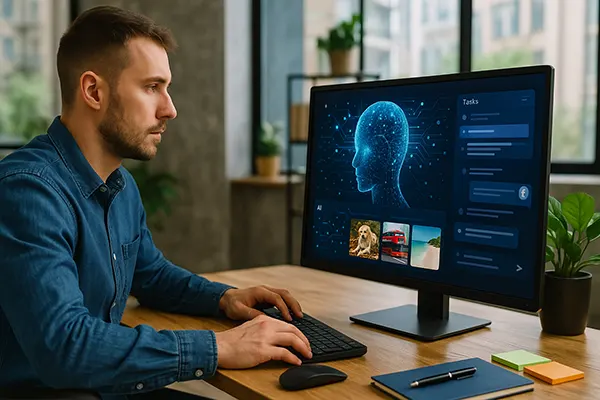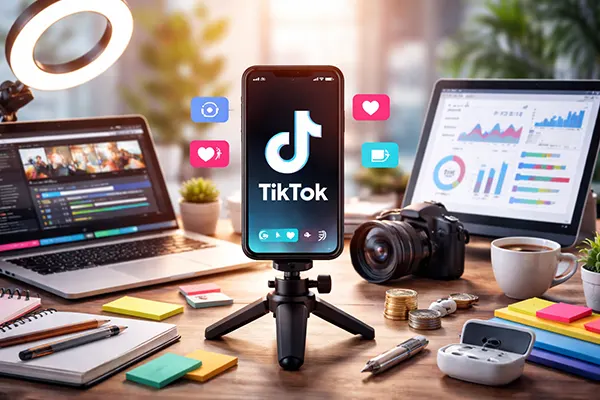
Microtasks for AI Models: How to Earn by Checking Data and Moderating Requests
With the expansion of artificial intelligence across industries, a new category of online work has emerged — microtasks for AI training and moderation. These tasks, while often small and repetitive, play a crucial role in refining the capabilities of modern AI systems. For many users, they also present a genuine opportunity to earn money through accessible, remote-based work. In this article, we explore how these microtasks work, what roles humans play in improving AI models, and how to start earning by participating in this field.
Understanding the Role of Humans in AI Microtasks
AI models rely heavily on human-verified data to learn and improve. This is especially true for large language models (LLMs) and image recognition systems that must interpret vast quantities of information from real-world scenarios. While AI can process and predict patterns, it often struggles with nuance, context, or ethical decision-making. Human moderators step in to validate AI-generated outputs or classify data sets so models can be retrained more accurately.
The most common types of microtasks include labelling content, verifying chatbot responses, evaluating translations, and assessing whether AI-generated images match specific prompts. These tasks typically take just a few minutes to complete, allowing workers to perform them flexibly and at scale.
Organisations such as OpenAI, Google, and Meta routinely collaborate with third-party vendors to crowdsource these tasks to global workforces. Platforms like Amazon Mechanical Turk, Appen, and Toloka serve as intermediaries, offering users a variety of microtasks that help shape smarter and safer AI models.
Data Verification as the Backbone of AI Accuracy
One of the most consistent and accessible forms of microtasking is data verification. This involves checking whether AI responses are factually accurate, properly structured, and free of bias or offensive language. Annotators may be asked to rate answers on a scale or choose which of two AI responses better addresses a user query.
Such feedback is essential for supervised fine-tuning and reinforcement learning processes used to improve generative models. For example, alignment training (like RLHF — Reinforcement Learning from Human Feedback) would be impossible without extensive human evaluation.
Besides improving accuracy, this layer of moderation also plays a critical role in ensuring the safety and reliability of public-facing AI tools. Given the scale of AI deployment in sectors like customer service, legal tech, and healthcare, human validation becomes an ethical requirement, not just a technical necessity.
Moderation Tasks: Filtering Inappropriate or Unsafe Content
Another major category of AI microtasks involves content moderation — ensuring that machine-generated responses or user-generated inputs adhere to community guidelines. These guidelines typically aim to prevent the spread of hate speech, misinformation, adult content, and other harmful or sensitive material.
Moderation tasks may include flagging violent imagery, reviewing text prompts for ethical violations, or rejecting AI completions that contain discriminatory language. Such tasks often require greater attention to context and cultural sensitivity, making human oversight indispensable.
In 2025, the demand for moderation services is increasing in line with the expansion of generative tools across languages and geographies. Localised moderation efforts, often carried out by native speakers, are becoming vital to ensure compliance with regional regulations and linguistic norms.
Training and Onboarding for New Moderators
While the work may seem straightforward, moderators usually undergo specific training to familiarise themselves with the rules, categories, and escalation processes. This training may include practice rounds, access to internal manuals, or short courses explaining model behaviour and expected standards.
Some companies offer tiered roles, where new workers begin with simple categorisation and, over time, move on to tasks that involve more complex ethical judgements. Those with backgrounds in linguistics, psychology, or education may find particular value in these advanced assignments.
Even for entry-level positions, attention to detail and emotional resilience are crucial. Encountering graphic or disturbing content is a known risk in moderation work, and platforms are increasingly offering mental health support to mitigate burnout among moderators.

How to Start Earning with AI Microtasking in 2025
For anyone looking to enter this line of work, the first step is registering on a trusted microtasking site. Some of the most reliable portals in 2025 include Remotasks, Toloka, Clickworker, and Appen. Once signed up, users complete qualification tests to access tasks relevant to their skills and language proficiency.
Payouts vary by complexity, region, and the volume of completed work. While simpler tasks might earn €0.05–€0.30 each, more advanced moderation jobs can pay €5–€20 per hour. Payments are typically processed weekly via PayPal or bank transfers, and minimum payout thresholds depend on the platform used.
Many users treat microtasking as supplemental income, while others — especially in regions with fewer job opportunities — pursue it full-time. Transparency about time commitment, task availability, and payout structures is key to setting realistic expectations.
Key Tips for Maximising Your Earnings
To succeed in microtasking, consistency and attention to detail are essential. Most platforms track accuracy and assign quality scores that determine access to higher-paying jobs. Maintaining a high accuracy rate not only improves earnings but also protects access to long-term projects.
Using task timers and setting daily goals can help users manage workloads efficiently. Many experienced workers recommend focusing on a specific type of task — such as classification, translation checking, or image annotation — to build speed and expertise.
Finally, joining online communities where microtaskers share updates, scripts, and platform-specific tips can dramatically improve results. Reddit forums, Discord groups, and Telegram channels are valuable spaces for learning and troubleshooting.



